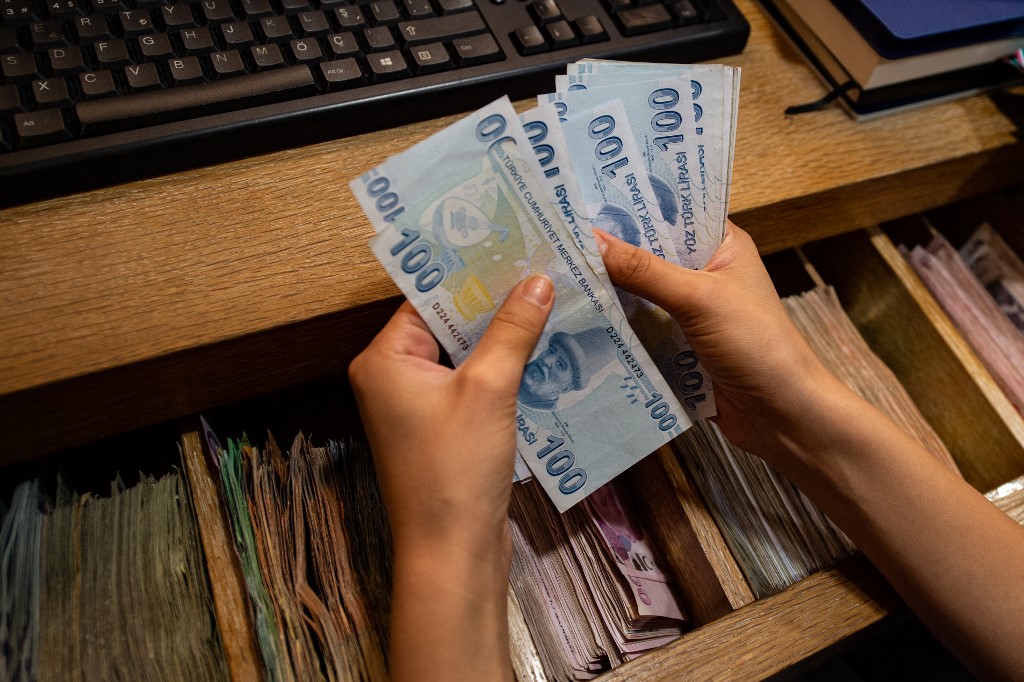Turkey has been ranked 107th among 177 countries, dropping 31 places since last year, in the Washington-based Heritage Foundation’s 2022 Index of Economic Freedom, falling under the category of “mostly unfree” countries.
The index measures economic freedom based on 12 factors grouped into four broad categories: rule of law (property rights, government integrity, judicial effectiveness); government size (government spending, tax burden, fiscal health); regulatory efficiency (business freedom, labor freedom, monetary freedom); and open markets (trade freedom, investment freedom, financial freedom).
According to the 2022 index, Turkey dropped 31 places in a year, from 76th in 2021 to 107th this year, with an overall score of 56.9 out of 100, which classifies the country as “mostly unfree.”
Turkey is ranked 42nd among 45 countries in the European region, and its overall score is below the regional and world averages, which are 69.5 and 60, respectively, the index showed.
“Unfortunately, a five-year trend of gradually declining economic freedom has accelerated,” the foundation said, explaining that Turkey’s economic freedom had plummeted 8.3 points since 2017, and the country had fallen from the “moderately free” category to the “mostly unfree” category, dragged down by sharp decreases in scores for fiscal health and rule of law.
The country recorded 42 points in property rights, 25.6 points in judicial effectiveness and 39.4 points in government integrity, all factors in the “rule of law” category, while it scored 59.2 in fiscal health, the index also showed.
“Although secured interests in property are generally recognized and enforced and there is a reliable recording system, the government seized at least $11 billion in private business assets after the 2016 coup, according to Freedom House. Purges after the coup also inflicted immense damage on the judicial system, which is heavily influenced by the executive,” the foundation said, adding that “pervasive corruption” was a major problem at all levels of government.
President Recep Tayyip Erdoğan and his Justice and Development Party (AKP) government deem the Gülen movement, the faith-based group inspired by Muslim preacher Fethullah Gülen, a terrorist organization and accuses Gülen as well as members of his movement of masterminding a coup attempt that took place on July 15, 2016. Gülen and the movement strongly deny involvement in the abortive putsch or any terrorist activity.
Following the failed coup, the AKP government launched a massive purge targeting the Gülen movement under the pretext of an anti-coup fight and has removed more than 130,000 people from civil service jobs.
The government also seized schools, universities, media outlets, companies and buildings, and the assets of individuals, corporations and organizations that were believed to have ties to the movement.
“Turkey is a constitutionally secular republic, but President Recep Tayyip Erdogan’s Justice and Development Party (AKP) has pursued an Islamist agenda and has eroded democracy,” the index said.
It added that while Turkey’s economy enjoyed significant growth in 2021, that growth had come in part after a currency devaluation driven by artificially low interest rates that affected price stability.
In January, inflation jumped to nearly 50 percent, according to official data from the Turkish Statistical Institute (TurkStat), after a currency crash late last year triggered by Erdoğan’s unorthodox low interest rate policy, raising the cost of living for Turks already struggling to make ends meet.
The Inflation Research Group (ENAG), an independent group of academics and economists that started calculating economic figures amid rising suspicion of manipulation of Turkey’s official economic data by the AKP government, put the figure at 114.87 percent.
Meanwhile, Turkish consumer confidence declined to 71.2 in February from 73.2 percent in January, reversing much of the increases made at the start of the year, according to TurkStat data revealed on Friday.
Any reading below 100 indicates pessimism about the future.
According to the latest survey by the Ankara-based MetroPoll, titled “Turkey’s Pulse – January 2022,” 76.1 percent of participants said they thought the economy was “poorly managed” by the government, with the figure surprisingly including 56.6 percent of AKP voters and 69.3 percent of supporters of its far-right ally, the Nationalist Movement Party (MHP).
